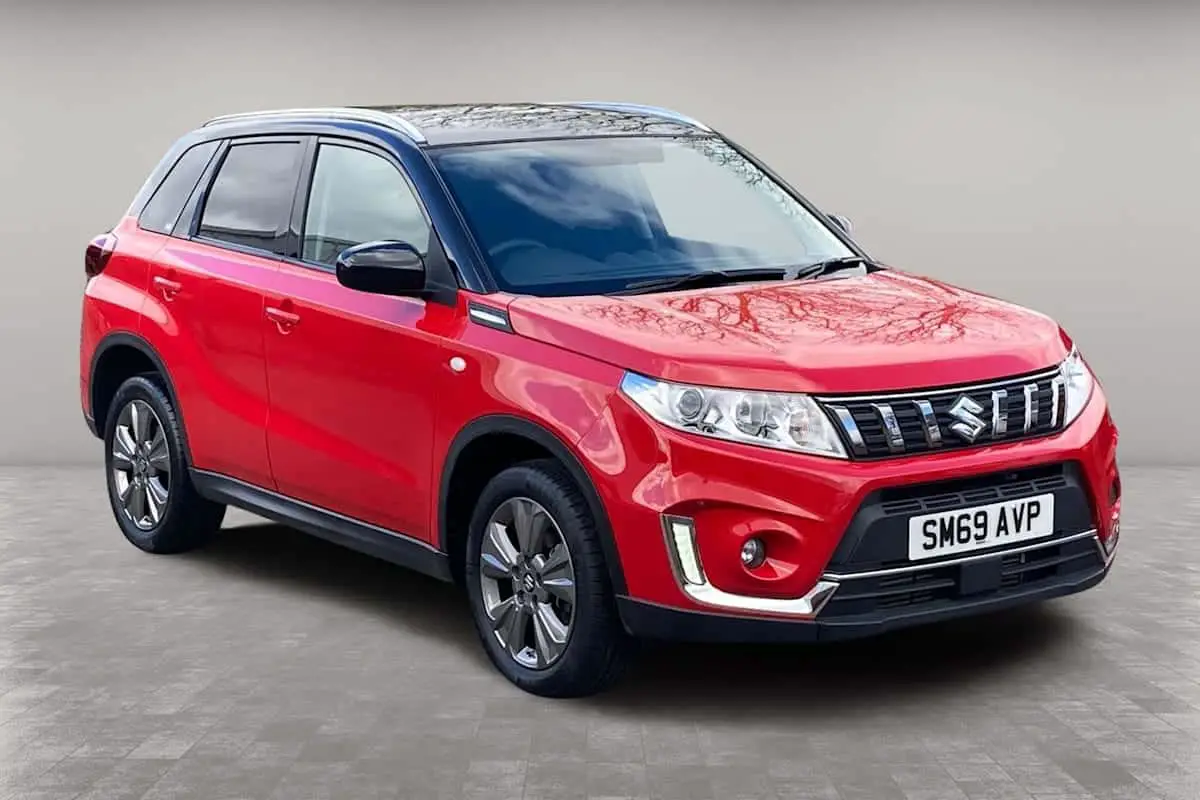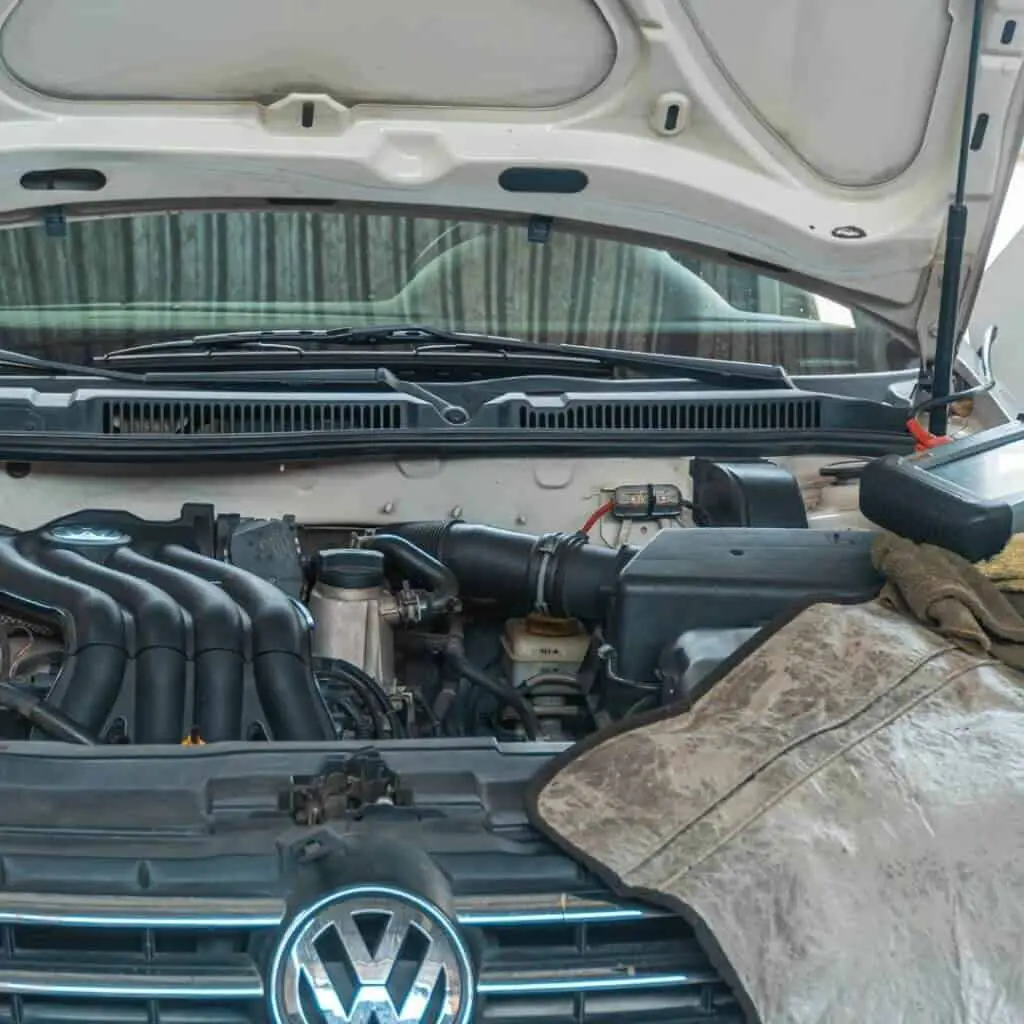What are the Suzuki Vitara common problems for new drivers?
Suzuki has developed five variants of the Vitara SUV line since 1988. The Suzuki Vitara is made to be affordable, efficient, and simple to operate. It’s a fantastic little SUV with a large boot, low maintenance expenses, plenty of standard features, and reasonable discounts off the list price.
With the most recent Vitara, front-wheel drive is now available as well as an option for two engines. Since the Vitara’s introduction, a 1.4 Boosterjet petrol engine with mild hybrid electrical support, producing 127 bhp and 235 Nm of torque has been available.
A “Full Hybrid” variant was offered by the brand in 2022. It replaces the automated mild-hybrid and should marginally reduce operating expenses. The car produces 113 horsepower and a meager 138 Nm of torque.
Over time, the Vitara has grown in popularity among drivers. Nevertheless, owners have reported some issues with the Suzuki Vitara. DPF, clutch, air conditioning, timing chain, and engine issues are a few of Vitara’s frequent problems. Some of these issues have prompted Suzuki to issue recalls for the impacted Vitara models.
Even though the 2000 Suzuki Vitara has the most complaints overall, CarComplaints ranks the 2016 model year as being worse due to other potential causes like higher repair costs or more issues at lower mileage [1].
Suzuki Vitara Common Problems

- Engine Problems
The experience of owning and operating a Vitara might be ruined by the vehicle’s propensity for engine trouble. Engine power loss and sluggish engine idling have both been noted by drivers of the Vitara. Your car might have this issue if you press on the accelerator and it doesn’t have the same amount of engine power as it once did.
Similarly, rough idling can be a sign that the car is having engine issues. Symptoms such as shaking, vibrating, and/or rattling sounds when the car is stationary are commonly reported [2].
In some cases, it’s simple to identify when the Suzuki Vitara engine is at fault. Engine vibration could cause bumpy rides. Therefore you should not start the engine before cranking it. Other times, such as when there is an oil leak, the engine may stop working before a problem is discovered.
It’s good to rule out any potential compression and fuel pressure issues with the Suzuki Vitara engine right away. The EGR valve in your car getting blocked up with carbon, which the Vitara is regrettably renowned for, can also be blamed for all of the engine issues.
Consider taking out the EGR valve and using carb cleaner spray to clean it. If required, use a brush. If the issue continues, it’s typically an indication that your EGR valve is beyond repair and you need to get a new one [3].
- Clutch Issues
Some Suzuki Vitara vehicles have reported clutch issues. Several drivers have stated that the clutch in their Vitara has lowered, making it feel stiff and challenging to press down.
When you press your clutch pedal, it should feel hard and have a feeling of resistance, which would mean that it is functioning properly. You might find it difficult to shift into a different gear when your clutch drops, making it feel like it is closer to the floor of your car.
If your clutch isn’t working properly, the pedal pivot assembly’s fractured weld is to blame. The only method to fix the issue is to install a new clutch. Make an appointment with a qualified mechanic to have them look at your clutch.
A clutch should typically be replaced between 30,000 and 60,000 miles because this is the average mileage at which your friction disc will start to wear out [4].
- Diesel Particulate Filters (DPF) Problems
Suzuki’s mechanical systems require clean oil and frequent oil changes, making this one of the most vulnerable areas. If this demand is not met, the automobile may have a dirty diesel particulate filter that may clog with soot. The blockage causes the vehicle to produce dirty smoke from the exhaust while it is operating.
DPF issues may manifest in your car with symptoms like the Check Engine light turning on, a drop in engine performance, and a drop in fuel efficiency [5].
The DPF is intended to eliminate exhaust fumes, but when it clogs up, your engine cannot operate to its maximum potential. If your vehicle exhibits any of these signs, it may be necessary to get the DPF inspected by a mechanic.
You can try running a long distance on the highway with your Vitara to try and clear it. But you might need to disassemble the device and clean it by hand. In the worst-case scenario, the DPF will be broken, and you’ll need to get a replacement.
- Timing Chain Problems
This appears to be the Suzuki Vitara and Suzuki “Grand” Vitara’s most prevalent issue, based on complaints from various online forums. The engine makes a rattling noise as it starts. The noise then intensifies and occurs more frequently, signaling an issue with the engine.
The timing chain tensioner, whose job it is to maintain the working tension of the timing chain on the crankshaft sprocket, may occasionally be the cause of the issue. Sometimes it can be a problem with the main timing chain.
The Suzuki Vitara was subject to one of the most extensive recalls due to the drive belt tension pulley. Numerous Vitaras were discovered to have an internal spring issue in 2011 that could result in a loss of tension in the system. You might notice a warning light on the dashboard if this problem has not been properly fixed. [6]
You will start to hear the rattling noise when your timing chain tensioners start to fail, which means you may need to replace the tensioners or, in the case of a damaged timing chain, the entire chain.
You should get your engine checked out by a mechanic to look for any timing chain problems. It could be risky to check the timing chain at home because it is housed inside the car’s engine. Furthermore, an engine oil change should be performed after repairing a broken timing chain tensioner.
According to mechanics, timing chain issues have been linked to poor maintenance. You must create a regular maintenance routine for your Suzuki Vitara engine if you want to stop this issue from happening again. As a result, by merely checking on the engine frequently, you can save a lot of money, time, and resources.
- Air Conditioning Problems
The Suzuki Vitara also has a problem with the air conditioning not blowing cold air. According to reports, the Vitara’s condenser fan motor is quite prone to failure, which makes it difficult for cool air to circulate through the system.
If the air coming from your car’s air conditioner won’t cool off, a refrigerant issue is frequently to blame.
A liquid (and occasionally a gas) called air conditioning refrigerant absorbs heat to chill the air that is blown out of the vents. Refrigerant pressure can decrease over time. The best method to resolve this issue is with an aircon regas.[7]
Read Also: Suzuki SX4 Problems
Conclusion
Suzuki has a solid reputation for producing tough off-road cars, and the Suzuki Vitara is unquestionably an attractive model. The Suzuki Vitara is a perfect option if you want four-wheel drive luxury in a strong, dependable package that’s easy to service and provides high fuel efficiency.
Unfortunately, this SUV is prone to some issues that can make owning and operating one a terrible experience. The timing chain, a faulty DPF, engine problems, air conditioning, and clutch issues are some of the most common Suzuki Vitara problems.
However, Vitara’s propensity for trouble does not render it a poor choice of vehicle; rather, it simply indicates that, like all wonderful things, it also has drawbacks. But if you pay attention to these common problems and provide exceptional maintenance, you can use this fantastic car for a longer period.
Read Next: Cupra Formentor Problems




